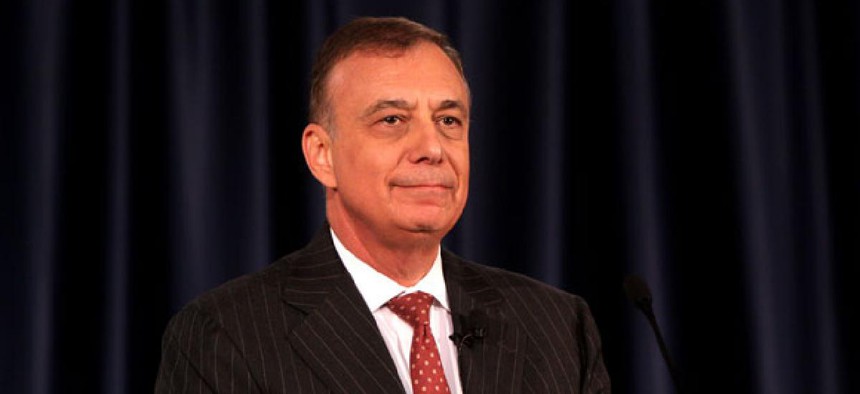
Mallory Factor Flickr user gageskidmore
AFGE defends taxpayer-funded union activities as ‘fair and effective’
Columnist calls official time a ‘shadow practice that must be stopped.’
A federal employee union defended the practice of “official time” -- when public sector union officials receive taxpayer funded salaries and work in government offices -- one day after a column denounced the practice.
A Wall Street Journal column Tuesday strongly condemned official time, calling the practice “a ruse for getting taxpayers to support union activities in the government workplace.”
The author of the article, Mallory Factor, is a conservative activist and businessman who recently wrote a book on the subject titled Shadowbosses: Government Unions Control America and Rob Taxpayers Blind.
The practice of keeping full-time union workers on the federal payroll -- also known as release time -- cost taxpayers $137 million in 2010, according to Factor.
Factor said the Office of Personnel Management no longer tracks the number of employees who work full time on union issues, but in 1998 -- the last time OPM did monitor the figure -- 946 workers fit into the category, while 912 spent at least 75 percent of their time on union activities.
OPM reported workers on official time spent 77 percent of their day on “general labor-management,” according to Factor, who said the “broad catchall” term for any union activity should raise red flags.
“This effectively subsidizes unions so they can spend more dues income on political organizing,” he wrote. “And it's all done without taxpayers' knowledge. It's a shadowy practice that must be stopped.”
When asked for comment by Government Executive, the American Federation of Government Employees defended official time, saying the practice has been in place for decades -- first sanctioned by an executive order signed by the Kennedy administration and then reaffirmed in the 1978 Civil Service Reform Act -- and their work covers nondue-paying members, so additional funding is needed.
“The use of official time allows our members to effectively represent their colleagues through activities such as setting procedures that protect employees from on-the-job hazards, establishing flexible work hours that enhance agencies’ service to the public, participating in improvement of work processes and providing workers with a voice in determining their working conditions,” said AFGE Legislative Director Beth Moten.
She added AFGE has negotiated “fair and effective” use of official time with federal management.







